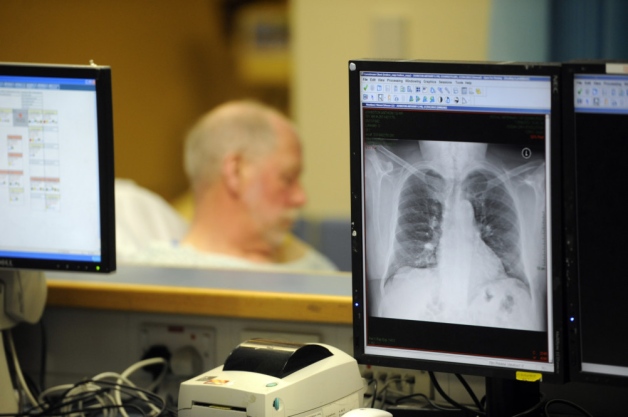Government Grants
Business Grants
Home Owner Programs
Federal Programs
About Us
Page 2
Ever since it's conception, the program has been using random telephone calls to conduct surveys and ask questions regarding different health concerns. However, with the significant rise of cellphone users in the United States, the collection of data through telephone calls have proven to become greatly inefficient.
| Sponsored Links |
|
|
For this reason, the CDC has decided to conduct the program's survey's through cellphone calls and e-mails, apart from the traditional telephone call method.
In an attempt to make the data collection process more revolutionary and successful, the funding opportunity in focus seeks to maintain and expand the process through:
a) The application of specific surveillance techniques through telephones and multimode survey methodologies focusing on the occurrence and prevention of chronic injuries and diseases.
b) The collation, analysis, and the dissemination of the data obtained form the surveys to State categorical programs in order to enable them to utilize the data in the process of evaluating certain trends, directing program planning, setting program priorities, developing policies, and tapping into target populations.
The CDC requires potential grant applicants to submit proposals that would outline the strategies and procedures that will be employed in order to realize the program's objectives. In this regard, the CDC is set to administer a total of $45,000,000 to approximately 53 grant awardees under the Behavioral Risk Factor Surveillance System Program.
The institutions and organizations that will be considered eligible to participate in this program are the following:
a) State governments of the United States
b) Bona Fide Agents from US State Governments including representatives from the District of Columbia, the Commonwealth of Puerto Rico, and the Virgin Islands.
Behavioral Risk Factor Surveillance System
Back to Page 1
About The Author Michael Saunders is an editor of TopGovernmentGrants.com one the the most comprehensive Websites offering information on government grants and federal government programs. He also maintains Websites providing resources on artist grants and children grants. |
Additional Government Grants Resources
Garrett A. Morgan Technology and Transportation Education Program
The Federal Highway Administration has recently established the Garrett A. Morgan Technology and Transportation Education Program wherein it aims to improve the readiness of students in the fields of science, technology, engineering, and mathematics by way of the application of curriculum development and several other activities that are related to transportation education.
Developing and Strengthening Services and Systems that Support Family Cohesion and Respond to the Separation of Children in Democratic Republic of Congo
USAID-DRC has established a program entitled Developing and Strengthening Services and Systems that Support Family Cohesion and Respond to the Separation of Children in Democratic Republic of Congo.
Find the Government Grant that You Need
When you are looking for something, you at least have an idea what you are looking for. It will be easier if you know exactly what you want. This is how you shop for shoes and clothes. Apparently, it is the same technique used when finding a grant....
National Science Foundation: Ocean Acidification
The Ocean Acidification Program is geared towards the acquisition of a better understanding of the potentially adverse effects of slowly acidifying oceans.
Effective Communication for People with Disabilities: Before, During, and After Emergencies
The National Council on Disability has recently established the program entitled Effective Communication for People with Disabilities: Before, During, and After Emergencies wherein the agency intends to assess the quality of communication between American with handicaps and disabilities before, during, and after emergencies.
Development of Measures to Determine Successful Hearing Health Care Outcomes
In accordance with this mission, the National Institutes of Health has recently collaborated with the National Institute on Deafness and Other Communication Disorders (NIDCD) in an attempt to constitute the Development of Measures to Determine Successful Hearing Health Care Outcomes Program.
Institutes for Advanced Topics in the Digital Humanities Program
The National Endowment for the Humanities has recently constituted the Institutes for Advanced Topics in the Digital Humanities Program wherein they aim to support regional and national training programs intended for scholars and advanced graduate students in an effort to widen and strengthen their abilities and understanding of digital humanities.
Social Entrepreneurship
Spotlight
Social Enterprises: Key to Enhancing a Nation’s Health

Glasgow Caledonian University (GCU) has launched a series of noteworthy research projects to learn if social enterprises can help Scotland lose its “sick man of Europe” label and boost the nation’s overall health.
